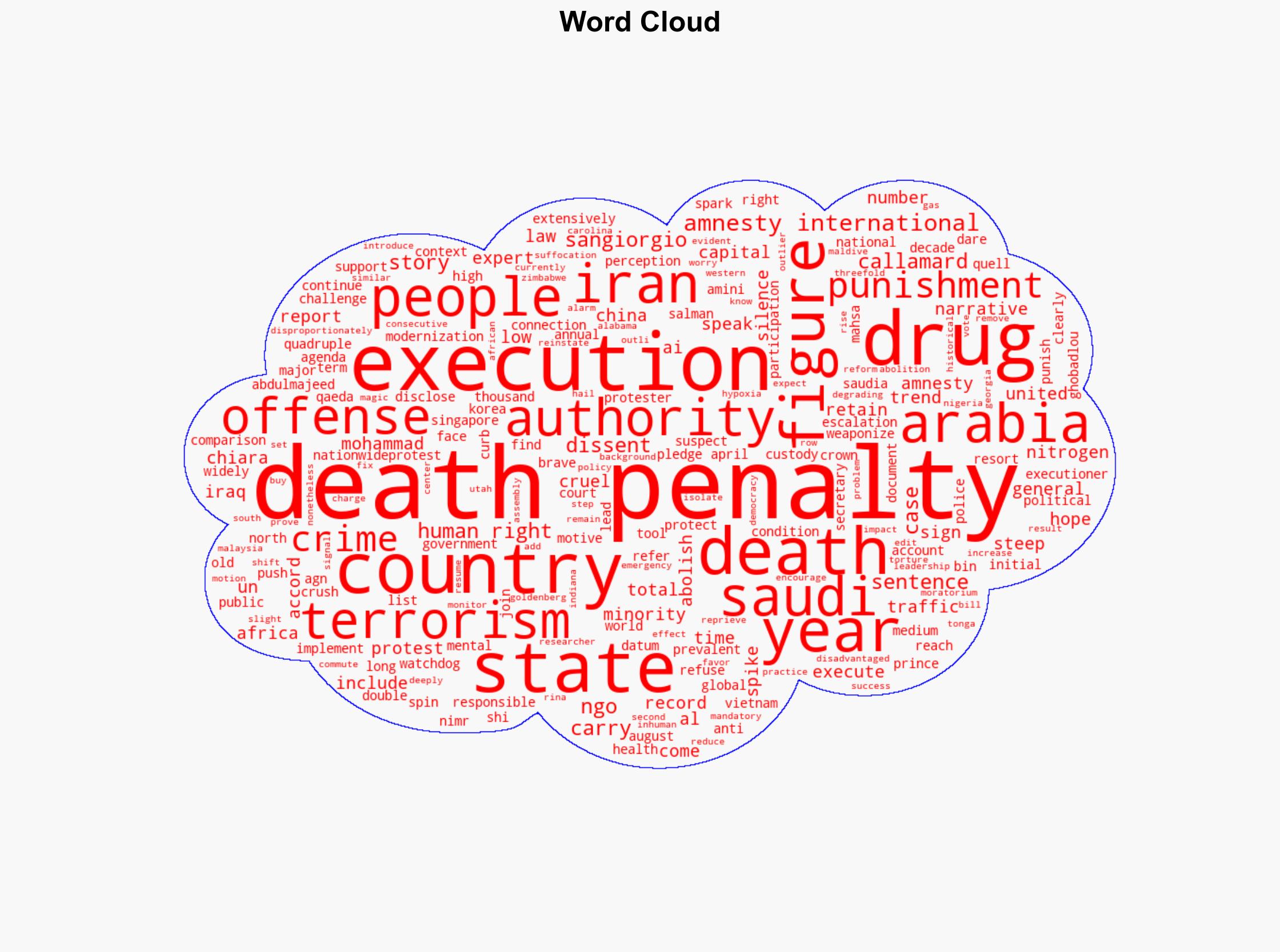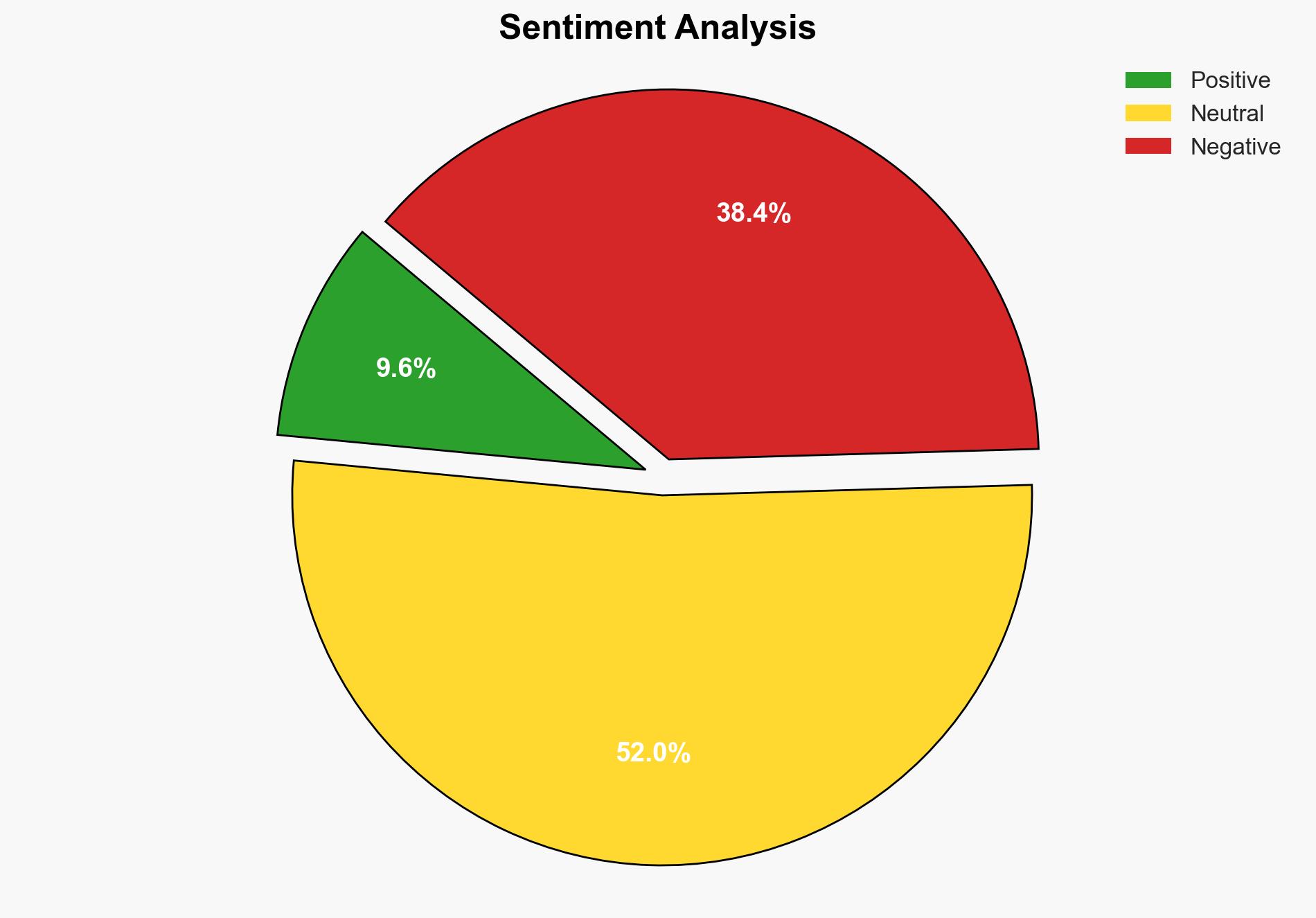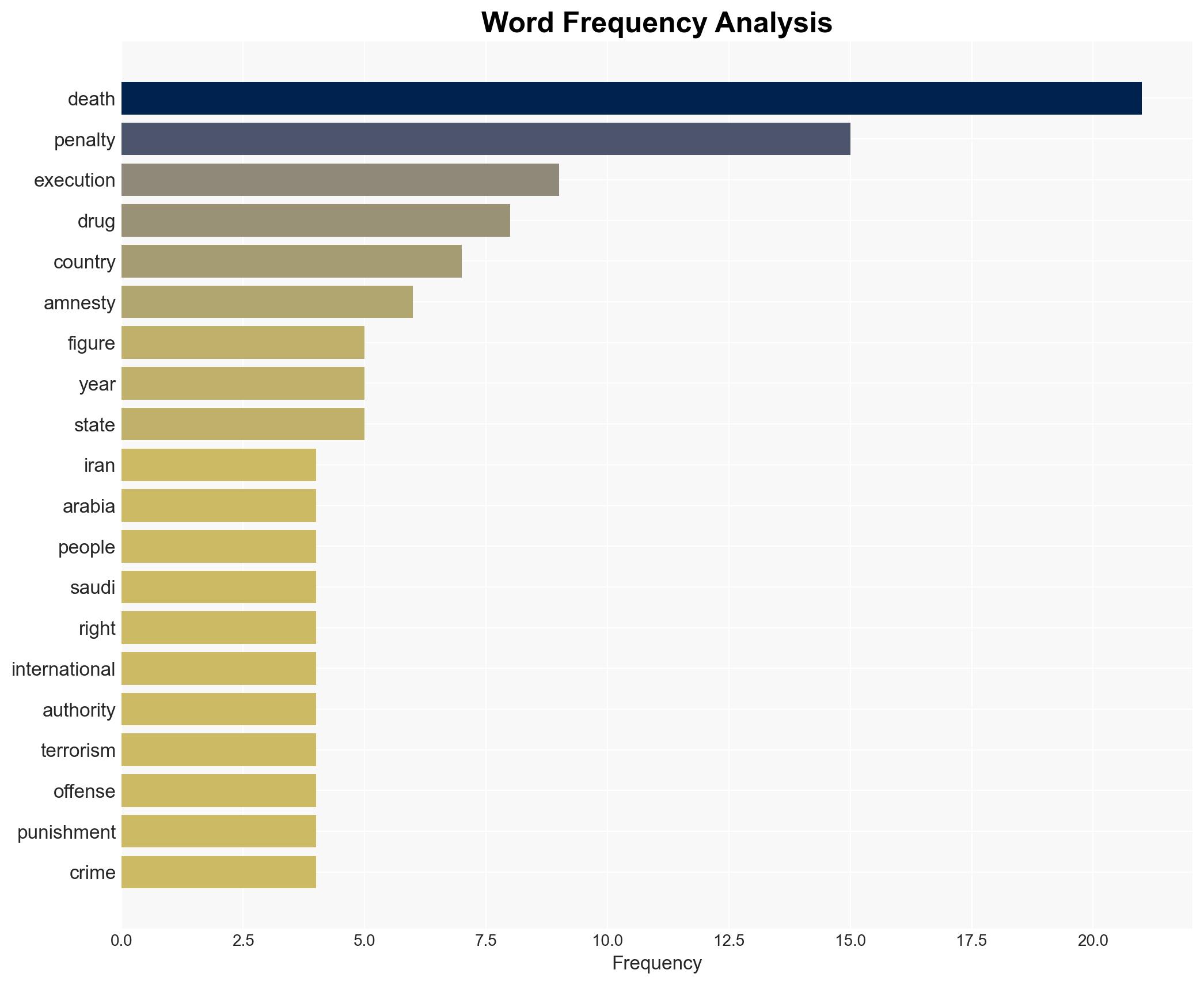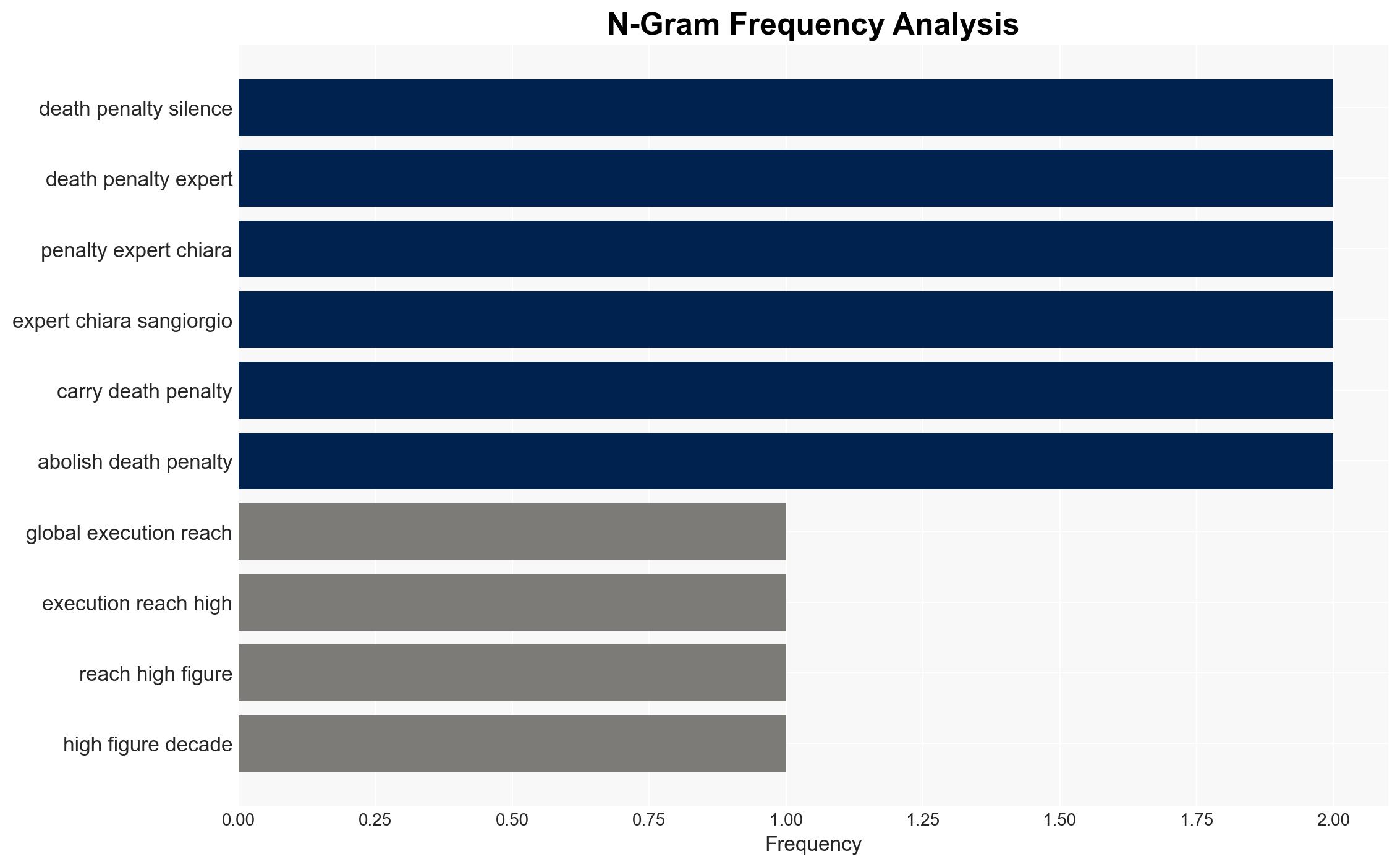Global executions reach highest figure in almost a decade – DW (English)
Published on: 2025-04-07
Intelligence Report: Global Executions Reach Highest Figure in Almost a Decade – DW (English)
1. BLUF (Bottom Line Up Front)
Global executions have reached their highest level in nearly a decade, driven primarily by increased activity in Iran, Saudi Arabia, and Iraq. The rise in executions is linked to political dissent suppression, drug-related offenses, and other criminal charges. Strategic focus should be placed on monitoring these trends, understanding their implications for regional stability, and advocating for human rights reforms.
2. Detailed Analysis
The following structured analytic techniques have been applied for this analysis:
General Analysis
The report highlights a significant increase in executions, with Iran, Saudi Arabia, and Iraq accounting for the majority of cases. Iran’s executions are notably linked to political dissent following the death of Mahsa Amini. Saudi Arabia’s increase is attributed to its internal political agenda and suppression of minority groups. Iraq has seen a quadrupling of executions, primarily for terrorism-related offenses. Amnesty International reports that China remains the leading executioner, though data is not disclosed. The use of the death penalty for drug-related crimes is prevalent in countries like Singapore and China, disproportionately affecting disadvantaged populations.
3. Implications and Strategic Risks
The increase in executions poses several risks, including:
- Heightened regional instability due to political dissent and human rights violations.
- Potential backlash from international human rights organizations and foreign governments.
- Increased tensions within countries, particularly those with significant minority populations.
The use of the death penalty as a tool for political suppression could lead to further unrest and international condemnation, impacting diplomatic relations and economic interests.
4. Recommendations and Outlook
Recommendations:
- Encourage diplomatic engagement with countries exhibiting high execution rates to promote human rights reforms.
- Support international efforts to establish moratoriums on the death penalty, particularly for non-violent offenses.
- Enhance monitoring and reporting mechanisms to ensure transparency and accountability in countries with high execution rates.
Outlook:
In the best-case scenario, international pressure leads to a reduction in executions and reforms in judicial processes. In the worst-case scenario, continued use of the death penalty exacerbates regional tensions and human rights abuses. The most likely outcome is a gradual shift towards reform, driven by international advocacy and internal political changes.
5. Key Individuals and Entities
The report mentions significant individuals and organizations, including Mohammad bin Salman, Abdulmajeed Al Nimr, Mohammad Ghobadlou, Agnès Callamard, and Chiara Sangiorgio. Key organizations include Amnesty International and the United Nations.





